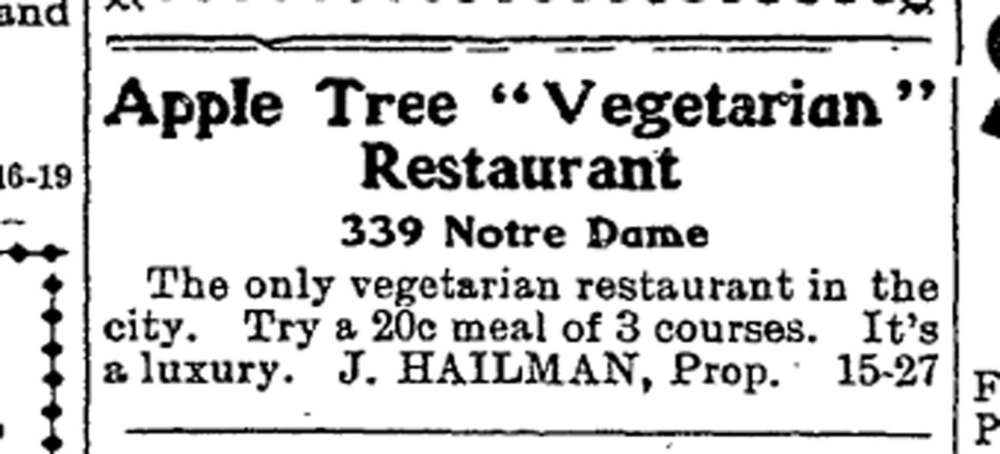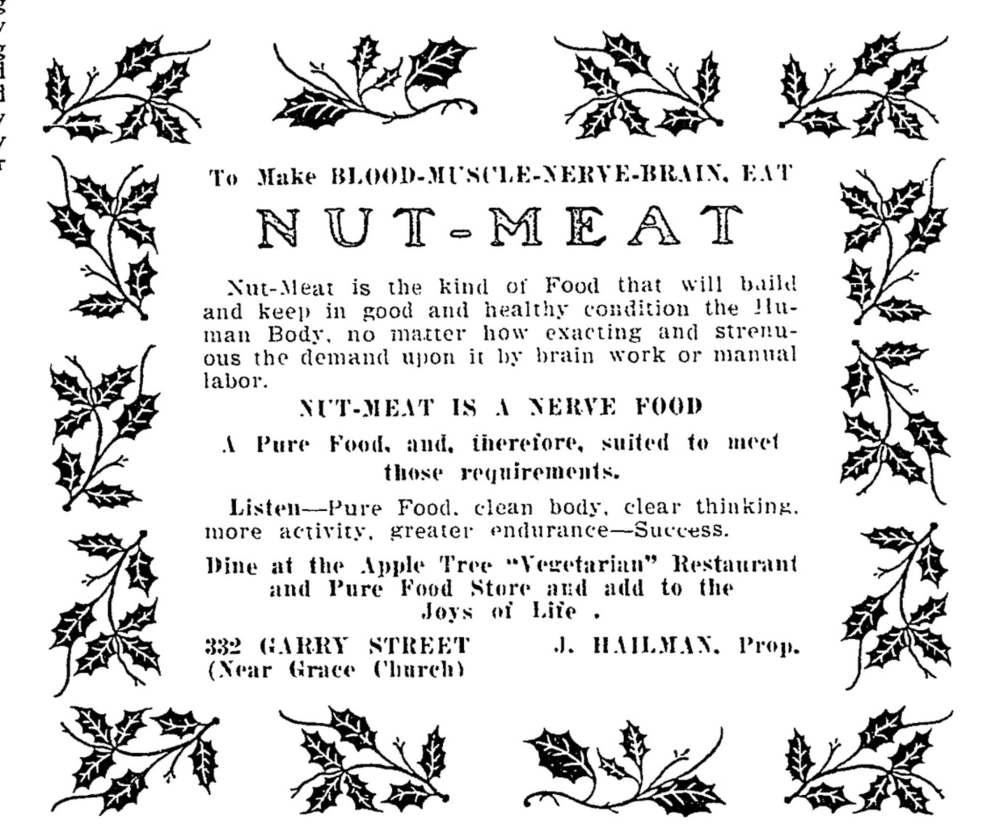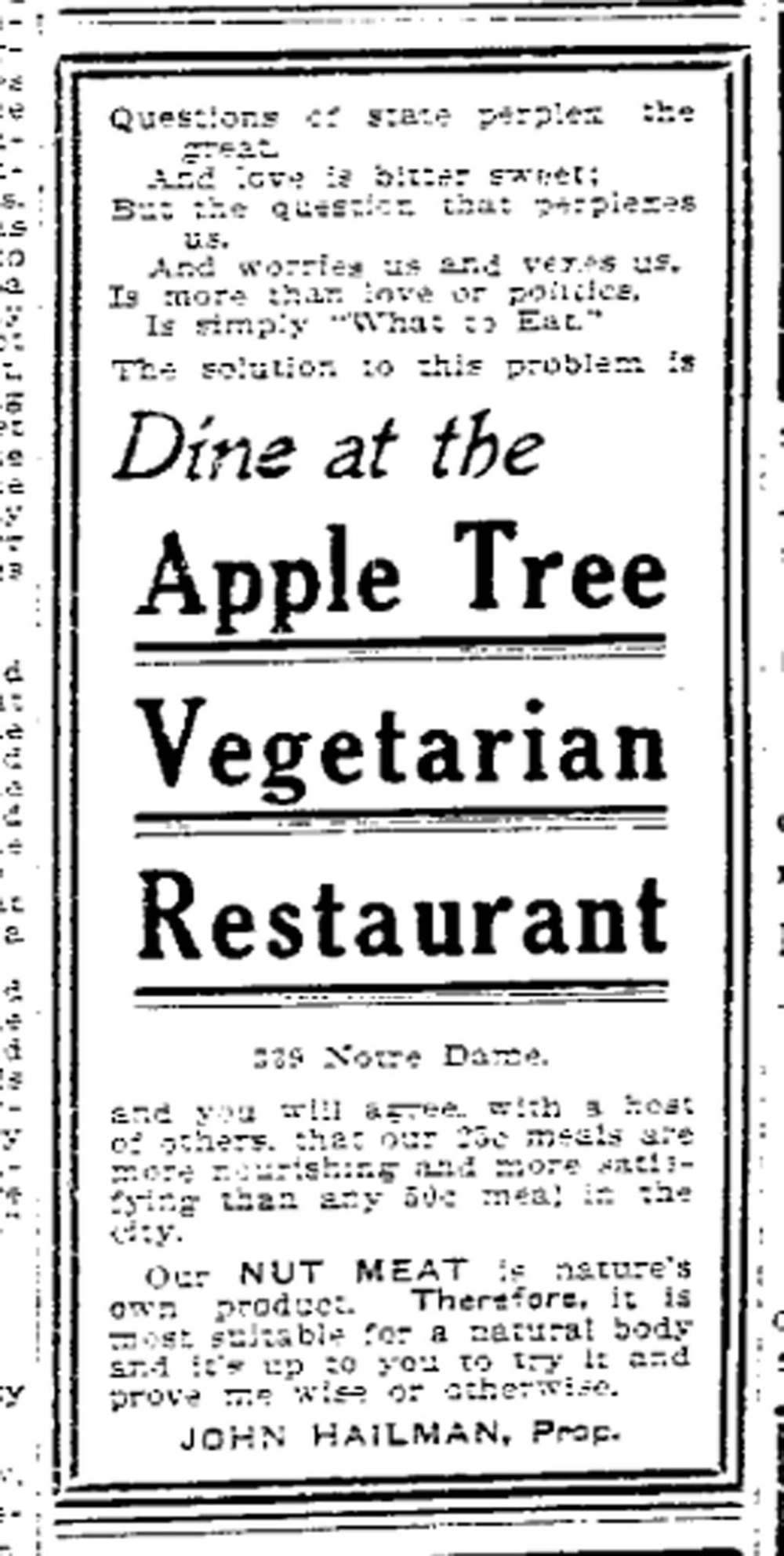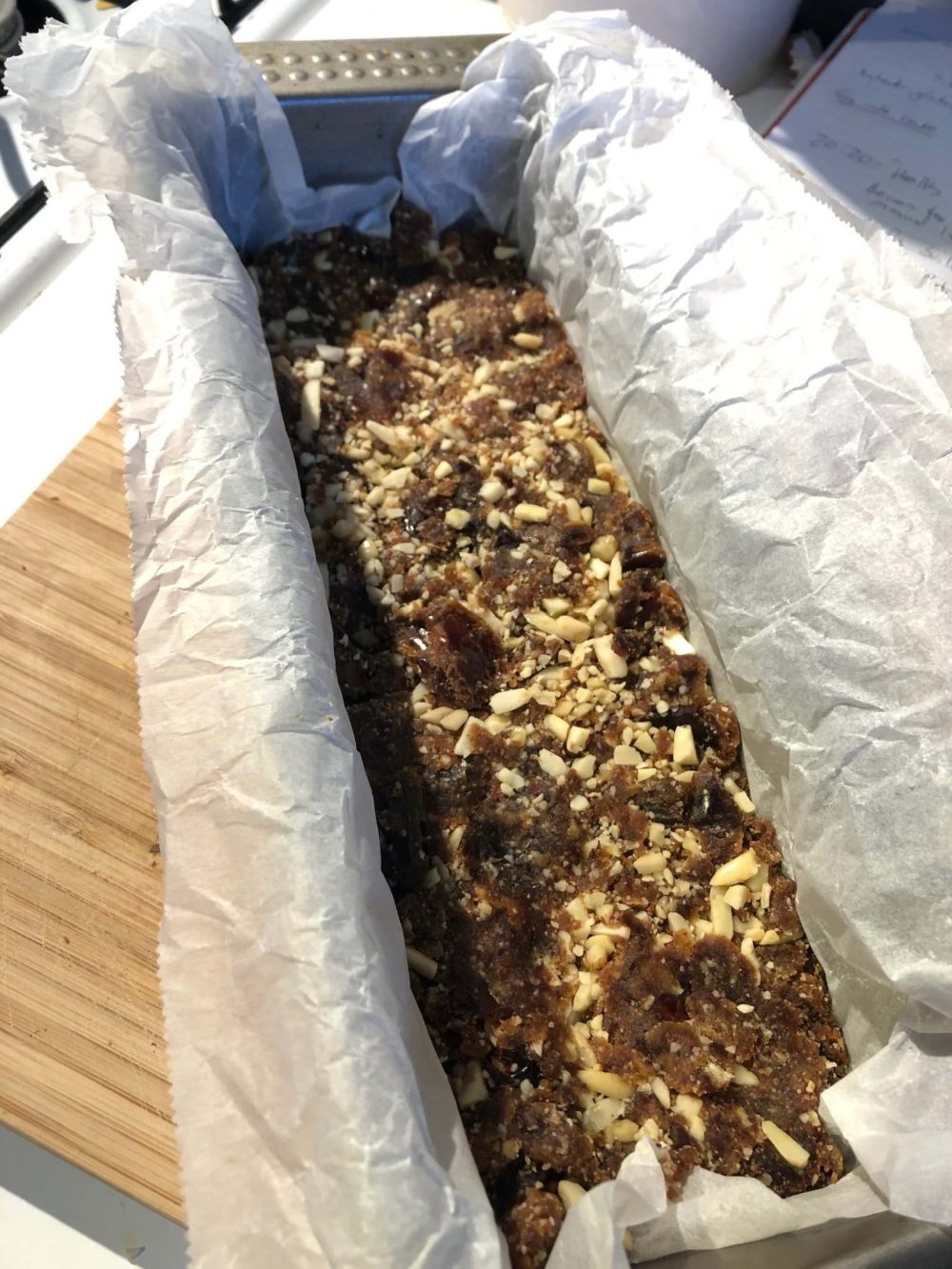Planting the seeds
Winnipeg's first vegetarian restaurant reflected 1900s trend toward pure foods, predicted today's vegan movement
Advertisement
Read this article for free:
or
Already have an account? Log in here »
To continue reading, please subscribe:
Monthly Digital Subscription
$0 for the first 4 weeks*
- Enjoy unlimited reading on winnipegfreepress.com
- Read the E-Edition, our digital replica newspaper
- Access News Break, our award-winning app
- Play interactive puzzles
*No charge for 4 weeks then price increases to the regular rate of $19.00 plus GST every four weeks. Offer available to new and qualified returning subscribers only. Cancel any time.
Monthly Digital Subscription
$4.75/week*
- Enjoy unlimited reading on winnipegfreepress.com
- Read the E-Edition, our digital replica newspaper
- Access News Break, our award-winning app
- Play interactive puzzles
*Billed as $19 plus GST every four weeks. Cancel any time.
To continue reading, please subscribe:
Add Free Press access to your Brandon Sun subscription for only an additional
$1 for the first 4 weeks*
*Your next subscription payment will increase by $1.00 and you will be charged $16.99 plus GST for four weeks. After four weeks, your payment will increase to $23.99 plus GST every four weeks.
Read unlimited articles for free today:
or
Already have an account? Log in here »
Hey there, time traveller!
This article was published 16/01/2021 (1810 days ago), so information in it may no longer be current.
Looking at a local restaurant menu, with items such as lima bean soup, mock chicken cutlets with tomato sauce, nut meat with fruits and fresh graham bread, you might imagine it being from the trendy plant-based Roughage Eatery on Sherbrook Street, or the Roost on Corydon Avenue.
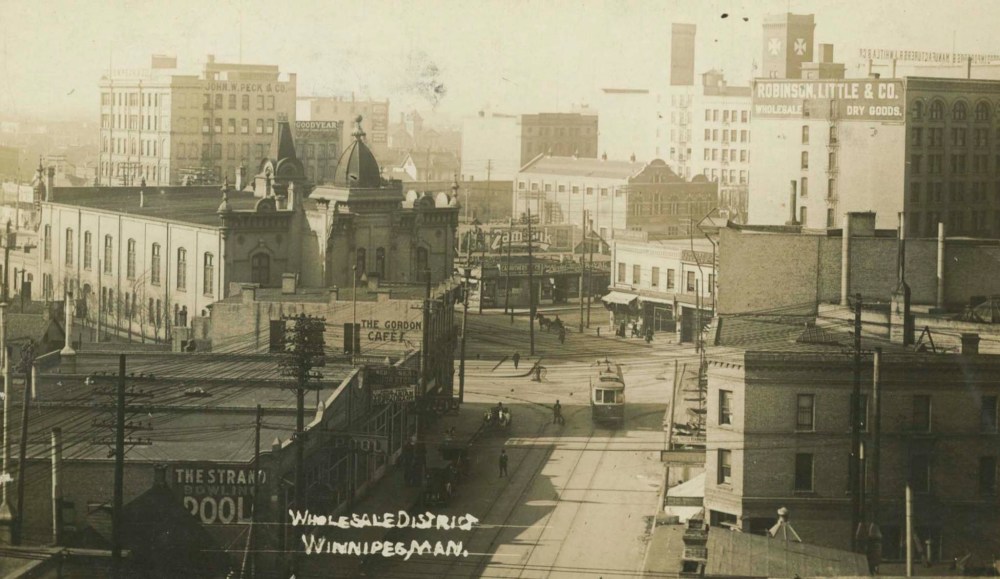
In fact, they are part of a menu from what was likely Winnipeg’s first ever plant-based restaurant, dating back to 1907. Apple Tree Vegetarian Restaurant was an establishment seemingly ahead of its time. Through a collection of archived advertisements, in particular for proprietor John Hailman’s own nut-based “meat,” we are offered a glimpse into how the vegan trend we see growing in Winnipeg today evolved from its much earlier days.
The recent discovery of Apple Tree Vegetarian Restaurant happened by accident, says local history buff Steven Stothers.
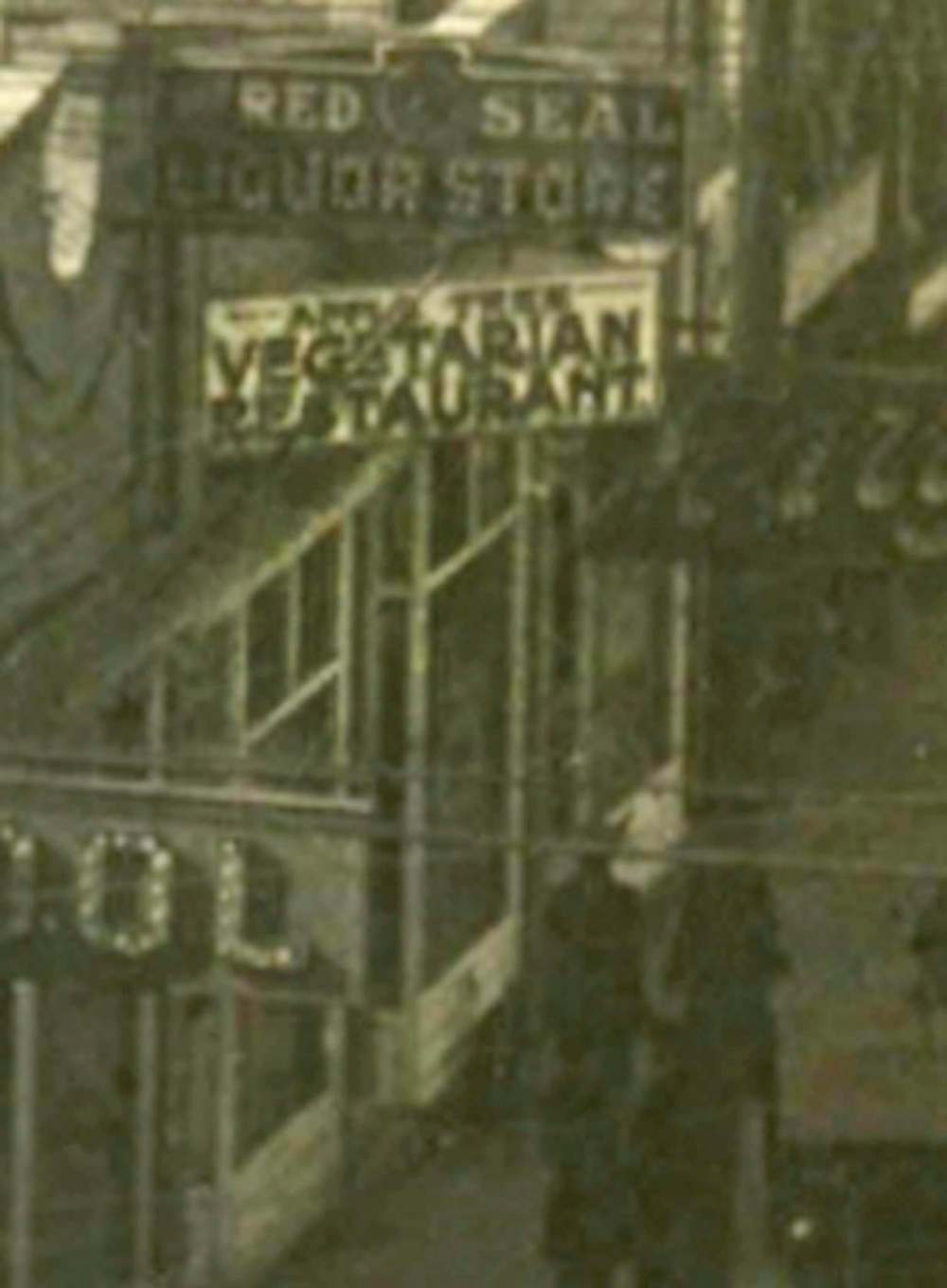
The street car enthusiast and owner of Winnipeg Trolley Company was scanning digitized photos of old postcards depicting the “wholesale district” of Winnipeg in 1910. A vegetarian himself, Stothers says he was looking through various street signs, “and I see the liquor store, and I see the pool hall, and then I say ‘What the heck is this? Apple Tree Vegetarian Restaurant?’” Stothers was shocked to see what appeared to be evidence of a fairly modern trend in downtown Winnipeg near the turn of the century.
Stothers was inspired to look further, diving into the archives of the old Winnipeg Tribune newspaper. He found several advertisements for the restaurant, which occupied at least three locations over time, on Garry Street, Notre Dame Avenue and Cumberland Avenue, until about 1913. The ads — also published in the Winnipeg Free Press and The Voice (a weekly newspaper published from 1890 to 1913 by the Winnipeg Trades and Labour Council) — describe “Pure and wholesome food, moderate price and prompt service,” and an experience that “supersedes argument.”

That argument, it seems, was that Hailman’s own creation, a nut- and date-based “meat,” was what we would likely deem a superfood today. “Nut Meat,” claimed Hailman in one ad, “is a Food which supplies nourishment and satisfies the most rigorous demand of the body. It builds up the wrecked body. It steadys [sic] the shattered nerve. It supplies heat to the perished system. And last but not least, it gives new activity to the bowels.” Therefore, he adds, “when other foods do not agree, try NUT MEAT at the Apple Tree.”
Though Stothers was surprised to learn of a vegetarian restaurant selling mock meats in Winnipeg so long ago, Adam Shprintzen, a food historian, professor and author of the book The Vegetarian Crusade: The Rise of an American Reform Movement, 1817-1921, says the trend actually spanned much of North America at that time. “The late 19th century is when you see this explosion — it starts in the U.S. but spreads globally — of the marketing of meat substitutes,” he says.
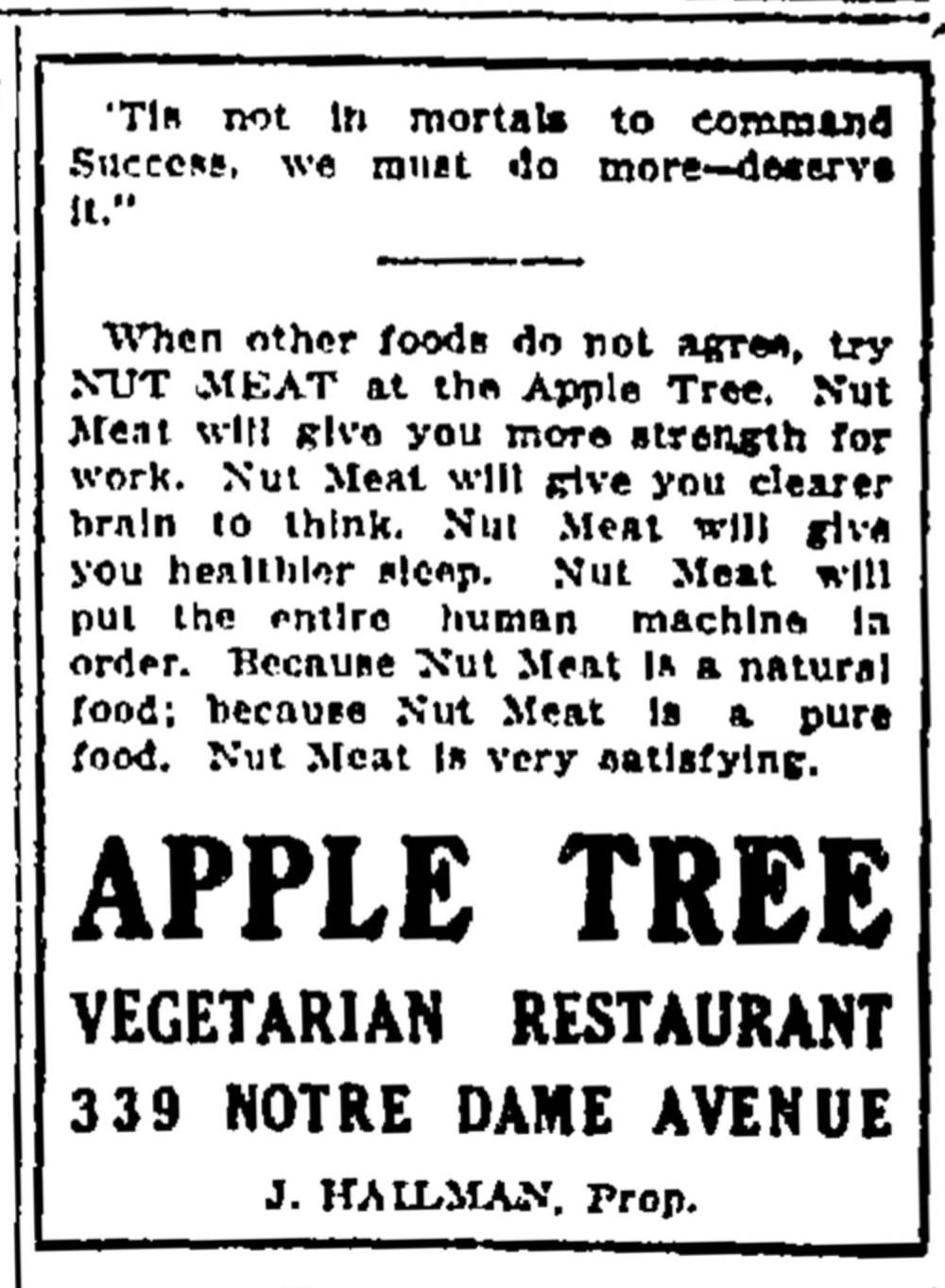
This came in part as a result of the industrialization of meat production. Killing and butchering animals had long been an on-the-farm process, but was then moved to centralized slaughterhouses, and further away from the public eye.
According to Ian R. Maclachlan in the Canadian Encyclopedia, the first slaughterhouse in Canada was established by F.W. Fearman in Ontario in 1852 (Fearman’s Pork is still in operation today). However, the first federal meat-inspection legislation, the Meat and Canned Foods Act, wasn’t created until 1907, spurred by reactions to Upton Sinclair’s 1906 novel, The Jungle, which exposed unhygienic practices at meat-packing facilities in the United States.
“There were fears about tainted meat,” explains Shprintzen, “concerns about purity, about the quality of food and about regulations around food.” This also occurred at a time when people were leaving the farm, leaving manual labour jobs, “and having this worry that people were becoming too weak,” he adds.
So there was branding, he says, by places like the Apple Tree Vegetarian Restaurant, “trying to build this sense of trust, and of healthy productive bodies.”
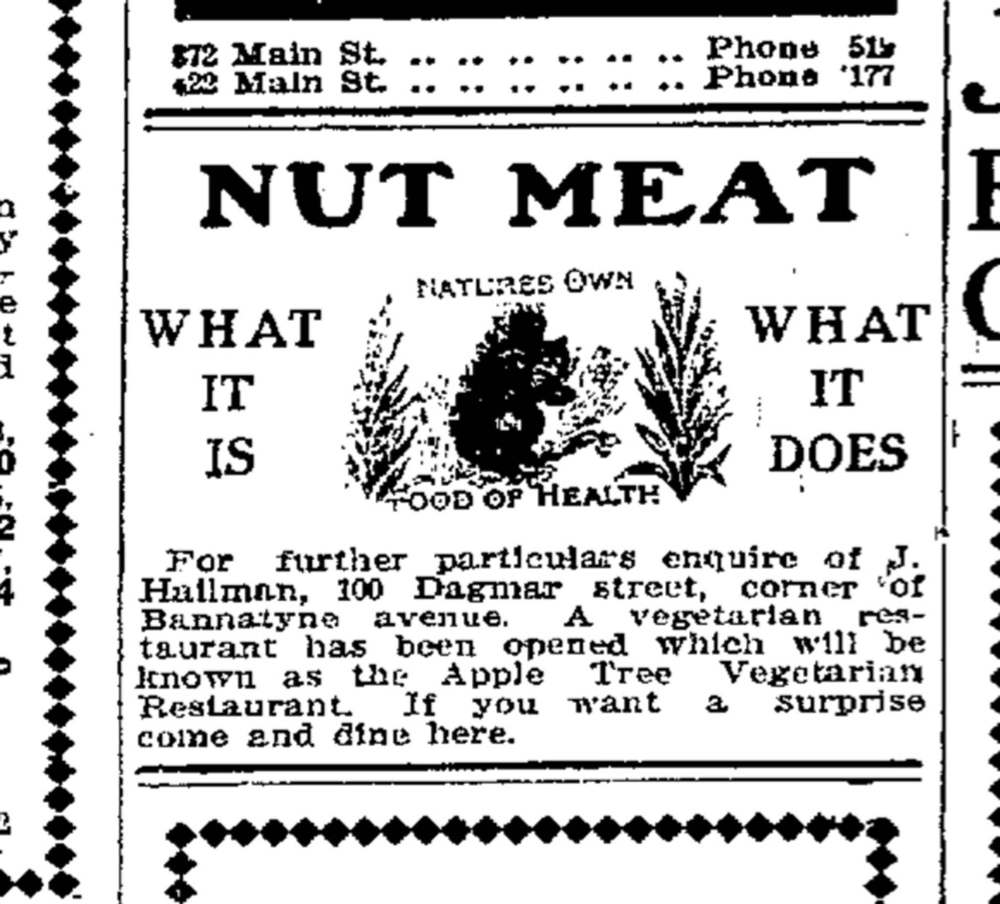
Interestingly, these concerns do not appear too far off from those driving the boom in the development and sales of meat and dairy alternatives today. Lack of transparency and government oversight in industrialized meat production is once again a growing concern among some modern-day consumers. Noted health risks associated with meat, dairy and egg consumption are also factors in the increasing number of North Americans turning to a plant-based diet.
In Winnipeg, mounting interest in animal-free eating is now being marked by an event that perhaps would have included Apple Tree Vegetarian Restaurant, if it were open today: the first annual Le Vegan Week, taking place Jan. 17-23. The event features dozens of restaurants around the city offering up specific plant-based dishes (for pickup and takeout only, owing to current pandemic restrictions), to be voted on by diners.
Stothers says if Appletree were around today, he’d surely be giving them a try. “The graham bread would be very interesting,” he says. “And Nut Meat, of course. Three courses for 20 cents,” he says with a laughs. “I’m there.”


